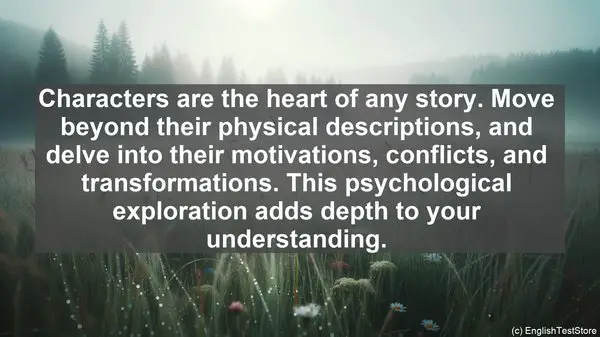Introduction: The Importance of Deepening Understanding
Hello, students! As you progress in your English-language literature studies, it’s crucial to go beyond surface-level comprehension. In this video, we’ll explore 10 methods that will not only enhance your understanding but also make your reading experience more enriching.
1. Active Reading: Annotate and Highlight
Don’t just read passively; engage actively. Annotate important passages, underline key ideas, and jot down questions or reflections. This not only aids comprehension but also serves as a valuable resource for future reference.
2. Contextual Research: Historical and Cultural Background
To truly grasp a literary work, delve into its context. Understand the historical and cultural milieu in which it was written. This knowledge will provide insights into the author’s intentions and the text’s significance.
3. Literary Devices: Unraveling the Artistry
Literature is replete with literary devices like metaphors, similes, and symbolism. Familiarize yourself with these tools, as they often carry deeper meanings. Analyzing their usage can unlock layers of interpretation.
4. Character Analysis: Beyond Surface Traits
Characters are the heart of any story. Move beyond their physical descriptions, and delve into their motivations, conflicts, and transformations. This psychological exploration adds depth to your understanding.
5. Plot Structure: Tracing the Narrative Arc
A well-crafted story has a clear structure. Understand the exposition, rising action, climax, and denouement. Recognizing these elements helps you grasp the author’s storytelling choices and the overall impact.
6. Comparative Analysis: Exploring Connections
Literature is a vast web of interconnected works. Compare texts from different periods or genres. By noting similarities and differences, you’ll gain a broader perspective on themes and techniques.

7. Discussion Groups: Sharing Insights
Engage in group discussions or join literary circles. Hearing diverse interpretations and engaging in debates widens your horizons. It’s amazing how others’ insights can shed new light on a text.
8. Writing: Crafting Analytical Essays
Writing about literature isn’t just an academic exercise. It’s a way to consolidate your understanding. Craft analytical essays, where you substantiate your ideas with textual evidence. This process sharpens your analytical skills.
9. Author’s Biography: Understanding the Creator
An author’s life often influences their work. Research their biography, and you’ll uncover connections between their experiences and their writing. This biographical lens adds another dimension to your analysis.
10. Re-reading: Unveiling New Layers
A great literary work reveals more with each reading. Don’t hesitate to revisit a text. With each re-reading, you’ll notice subtleties, foreshadowing, and thematic nuances that escaped you before.

